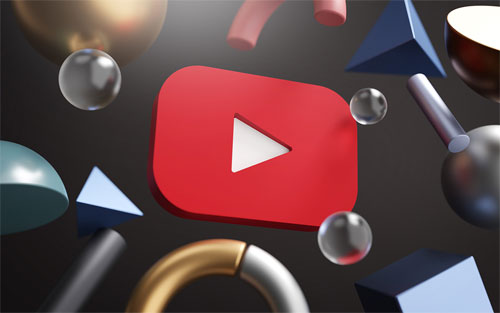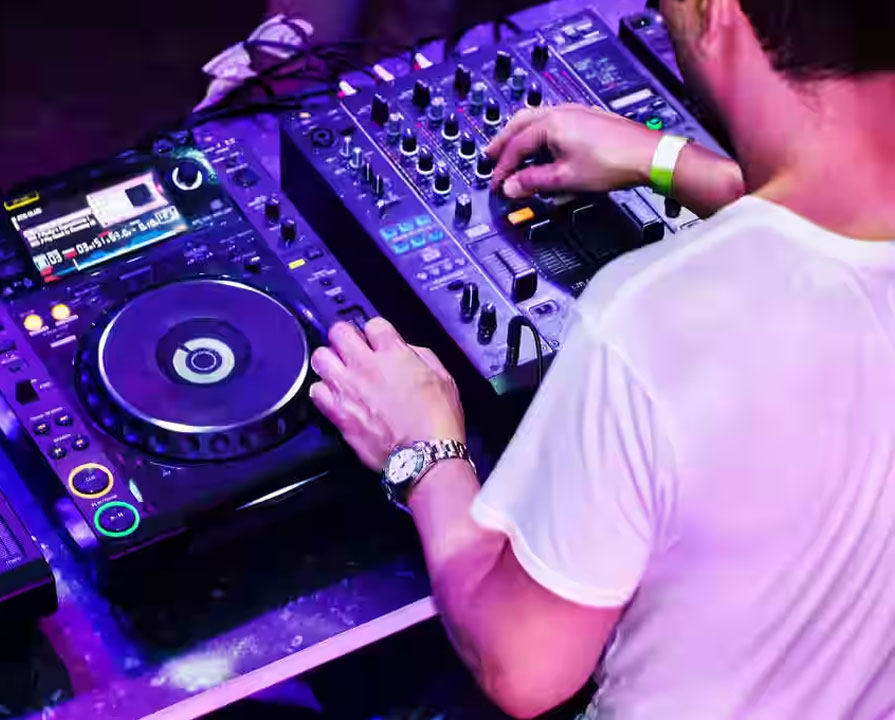Feel the Music and Follow the Beat
- Introduction about Disc Jockey
- Jounour of Music
- BPM Matching and Mastering
- Crowd Control and Mike Instrumental Knowledge
- Rapping and Scratching
- Business of DJ,ing
- Live Shows and Events
- Equipments and Wiring
Get the best-certified DJ courses at MOVIE MAATCH
A professional disc jockey, or DJ, can work as either a radio DJ or party DJ. As a radio DJ, you would select songs to play on the station, provide commentary and organize advertisement plays. Often, this requires coordination with a technician in the broadcasting booth, in order to make sure that your comments coincide with the right song or commercial. Other duties include writing and editing copy, presenting news and weather, interviewing guests and participating in community-related activities. As a party DJ, you would play music and make announcements at special events, such as weddings and birthday parties, or at an establishment like a bar or night club. Party DJs generally operate their own equipment, choosing songs from a collection of digital files or portal music device.
Disc jockeys, also known as DJs, play musical recordings on radio shows, at nightclubs, and at public events. DJs mostly work for radio stations presenting programs, talks shows, and chart shows. They ensure musical recordings and advertisements are played on time and also interact with listeners through social media.
A disc jockey (also called a DJ or deejay) is a person who plays recorded pop or dance music for dancers or listeners and introduces the names of the songs using a microphone.
What Skills Do I Need?
To be a disc jockey, you'll need good diction, solid voice control and a pleasant speaking voice. When working special events, disc jockeys may need to emcee the event and work the crowd. Being aware of the newest music trends is essential; some knowledge of sports and current events is helpful because radio disc jockeys may talk about these subjects as part of their jobs. Though no degree is required to work as a disc jockey, attending classes in broadcasting, journalism, drama or public speaking can help you develop the skills needed. The knowledge gained in a degree program in broadcasting, communications, journalism or English can help prepare you for a career as a disc jockey as well.

Why Movie Maatch

CERTIFIED DIPLOMA COURSE IN DISC JOCKEY
We work with you to keep you on track, change with new technologies and business strategies and most importantly help you to succeed.
DJ courses in Movie Maatch
- Introduction to DJing (Types of DJ's) and History & Evolution of DJing
- Familiarization with DJ Acoustics
- Science of Beats & Sounds and Equipment Connections
- Music Sourcing, Downloading & More
- Case Studies and Business of DJing
- BPM matching & fixing
- Learn how to Cue
- Playing Club or Party sets
- Crowd control & Mike and Understanding Song / Track structure
- Rapping and DJ Etiquette
- Equalizers, Sound Effects & control of Advanced equipment's features

For Whom
For those who love Music
Eligibility
Musically Inclined Individuals
Unlock the Key to your Bright Future!
Get Ready to Achieve Your Goals With MOVIE MAATCH.
What Are the Job Duties of a Disc Jockey?
Disc jockeys tend to work for radio stations performing on-air duties, such as playing music, reading commercials, interviewing guests and, sometimes, taking song requests over the phone from listeners. In their off-air time, disc jockeys will create programming and write scripts and commercials for future programming. They may work for radio stations known for playing a certain type of music, or they may be asked to plan a day's programming around a certain theme.
Many disc jockeys also do website editing and promote their station through social media outlets. Disc jockeys are often active in the community, making personal appearances to support their station or serving as master of ceremonies at special events. Besides working in the radio industry, disc jockeys can provide background and dance music for weddings or clubs, keeping the entertainment flowing throughout the night.
Features & Advantages

- Creative expression: Being a DJ allows you to express your creativity through music selection, mixing, and remixing. You have the opportunity to curate unique playlists and create memorable experiences for your audience.
- Interaction with the crowd: DJs have the chance to connect with a diverse range of people through their music. Reading the crowd's energy and adjusting the music accordingly can create a powerful bond and a sense of shared experience.
- Networking opportunities: DJing often involves collaborating with other artists, producers, and event organizers. This can open doors to new opportunities, such as working on collaborative projects, getting exposure to a wider audience, and building valuable connections within the music industry.
- Flexibility and freedom: As a DJ, you have the flexibility to work on your terms. You can choose your gigs, set your schedule, and have creative control over the music you play. This level of independence can be appealing to those who value autonomy.
















